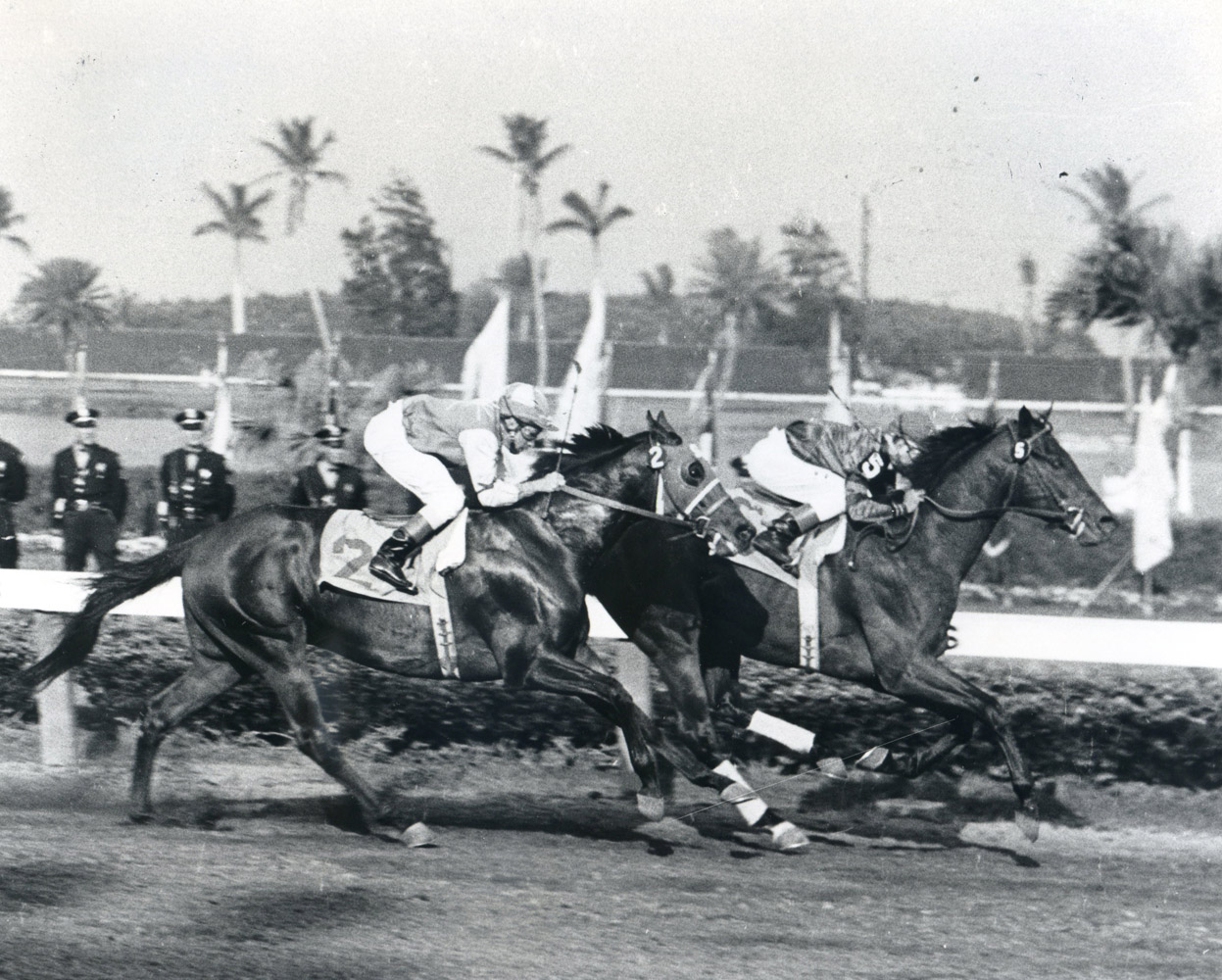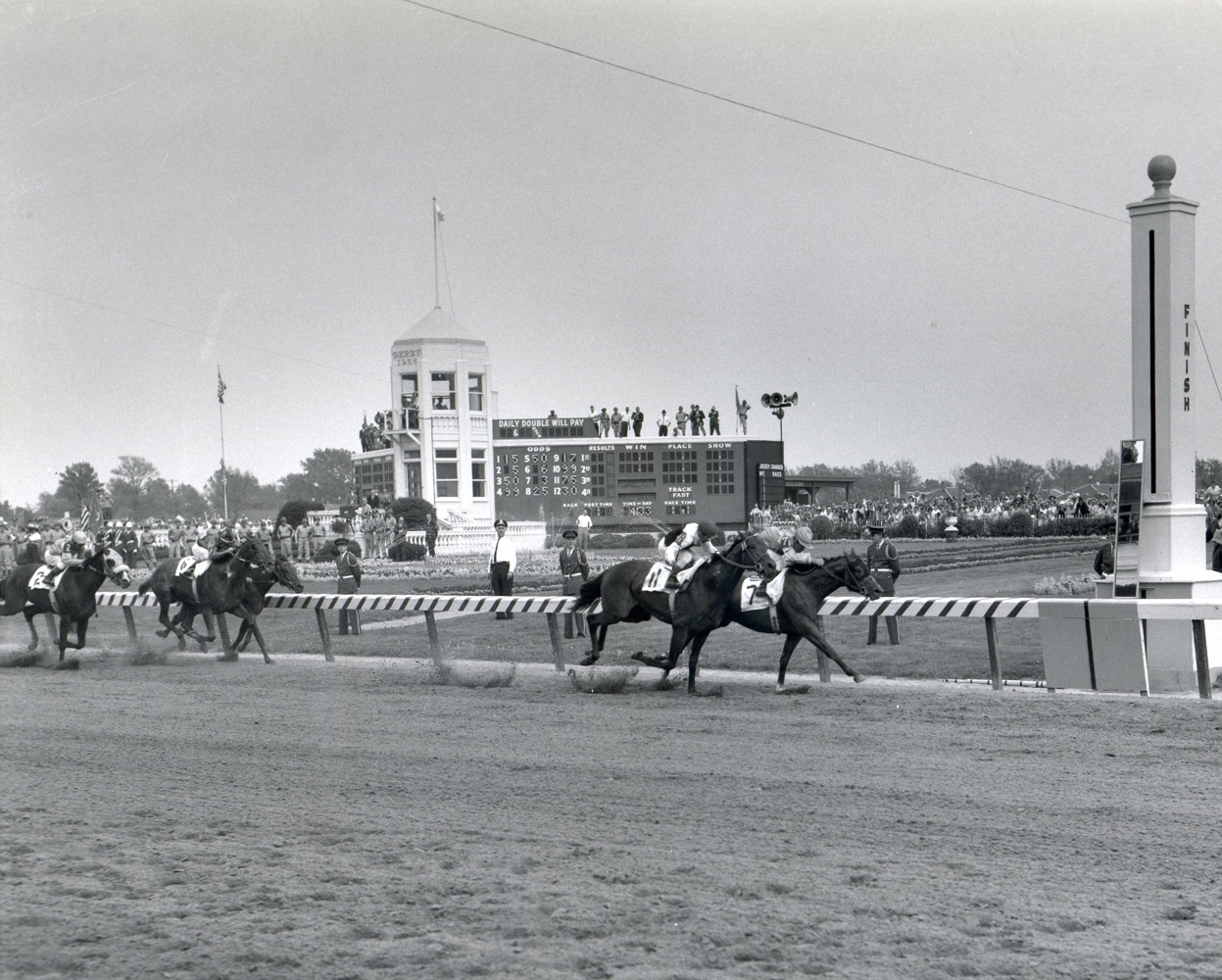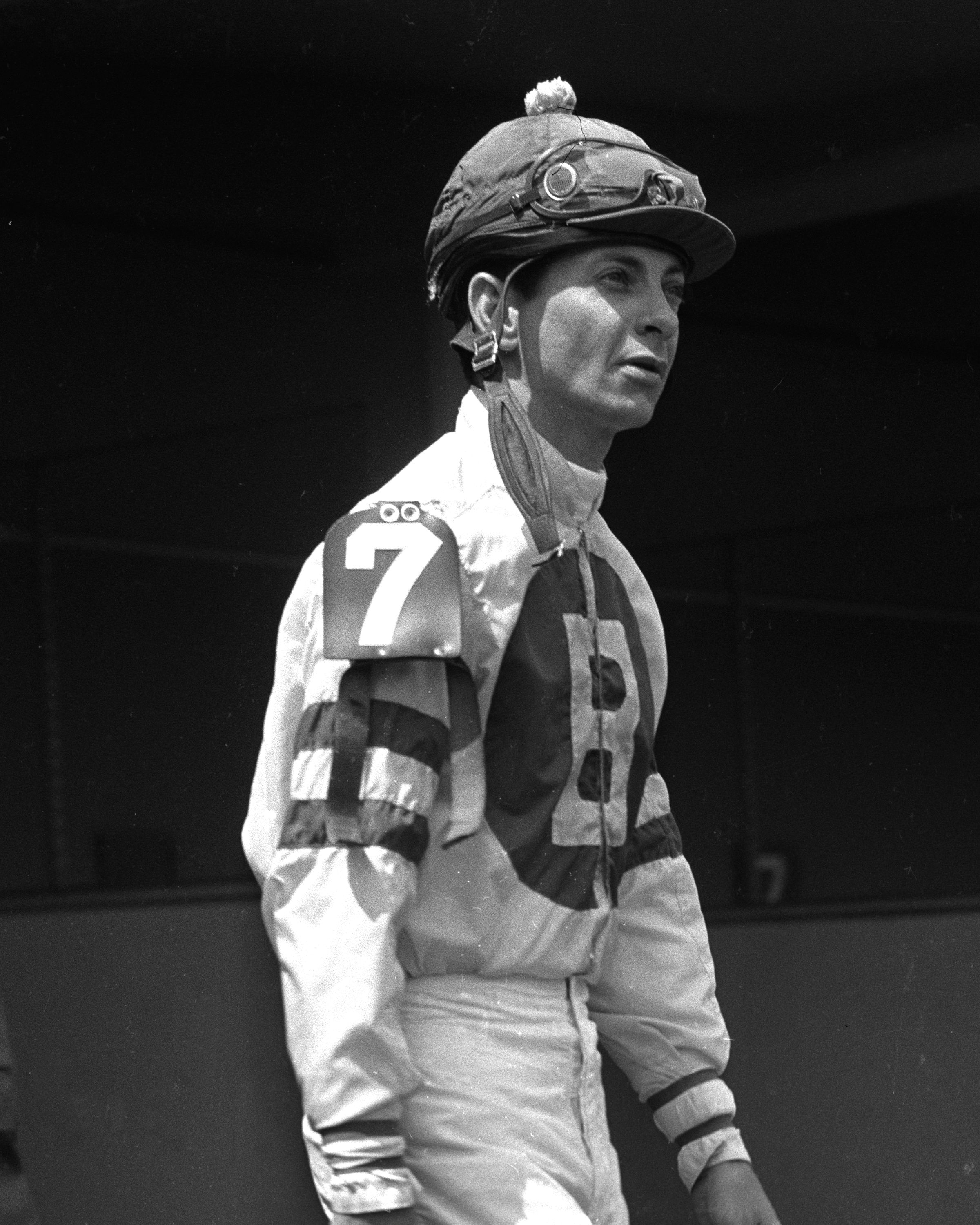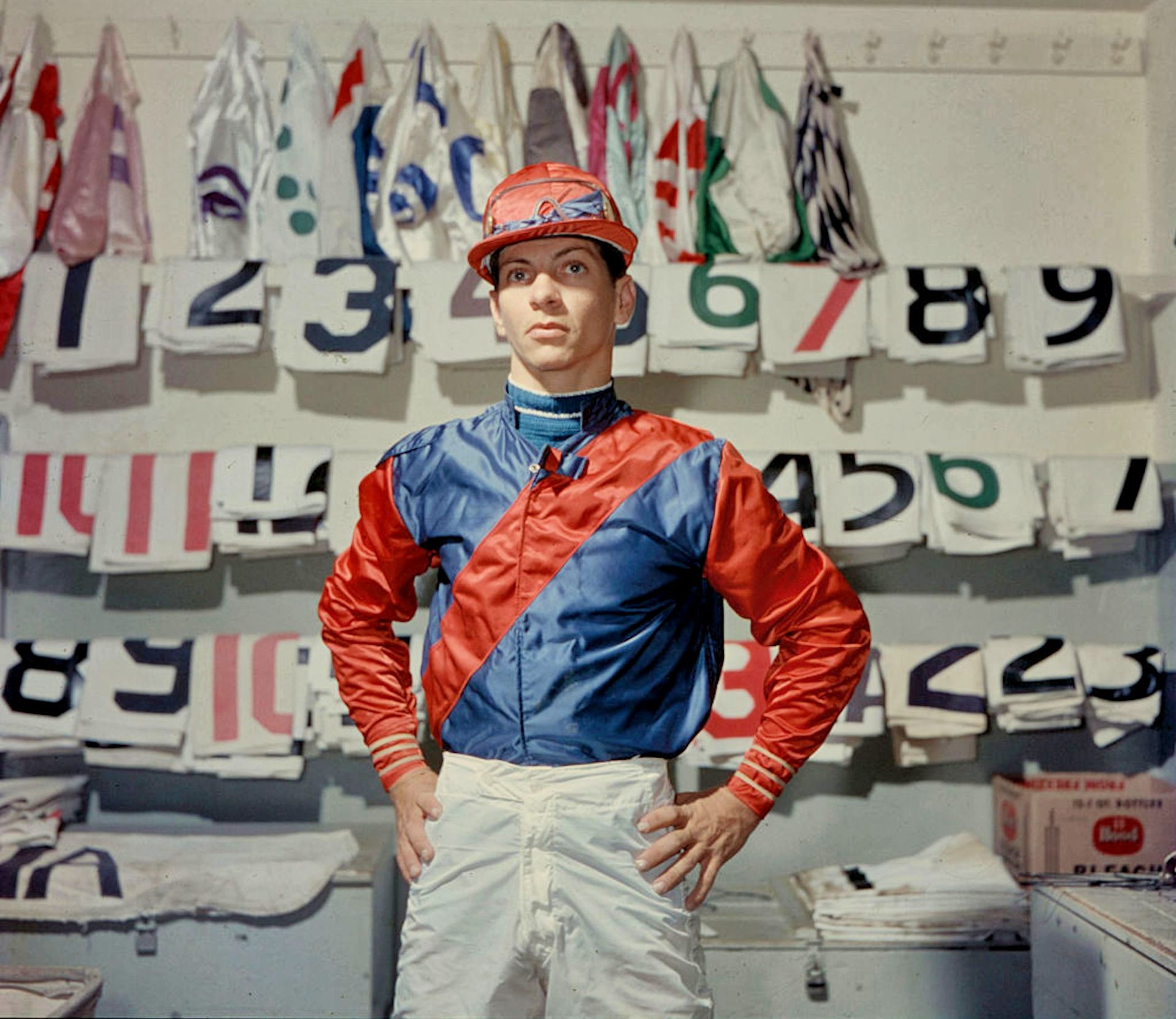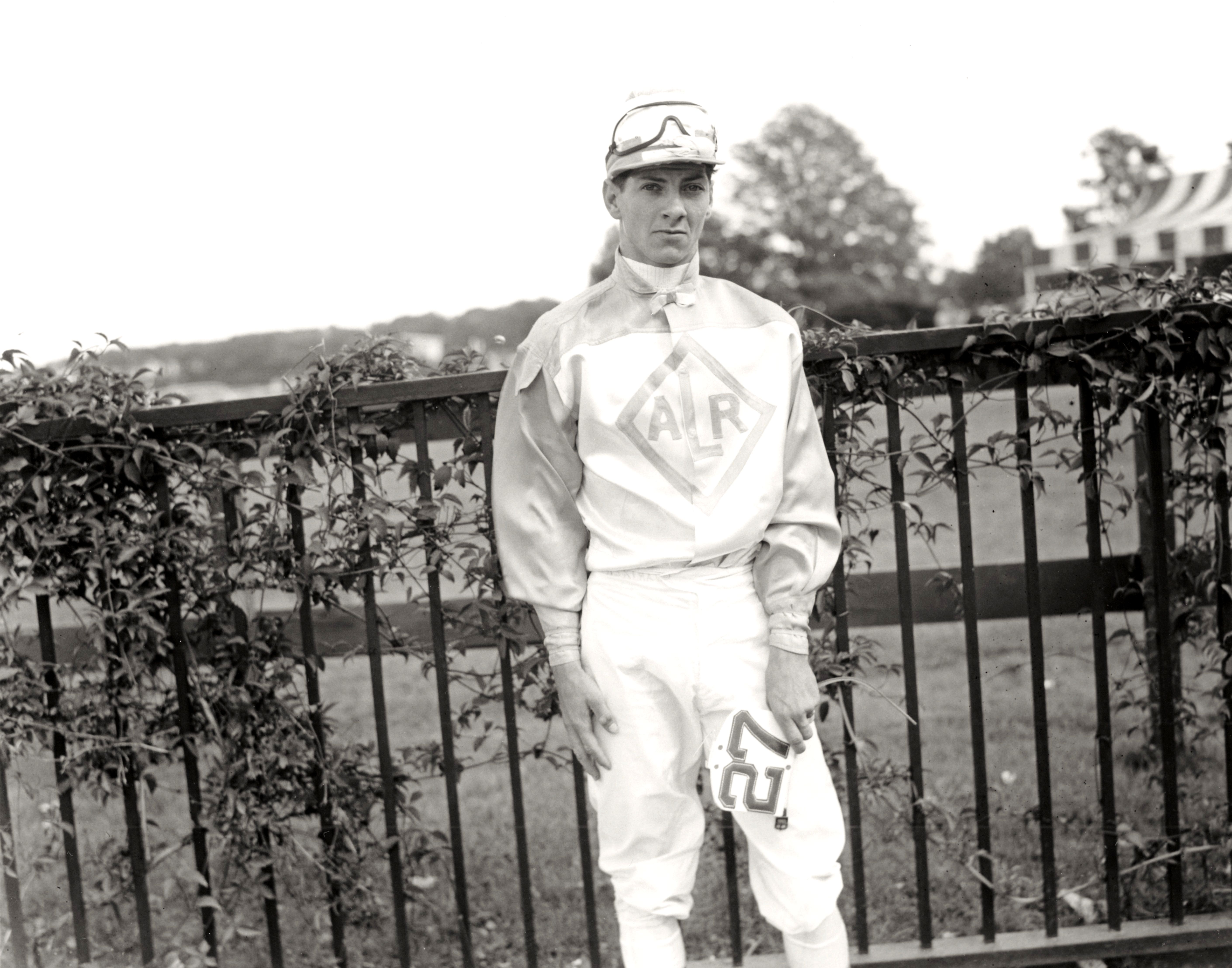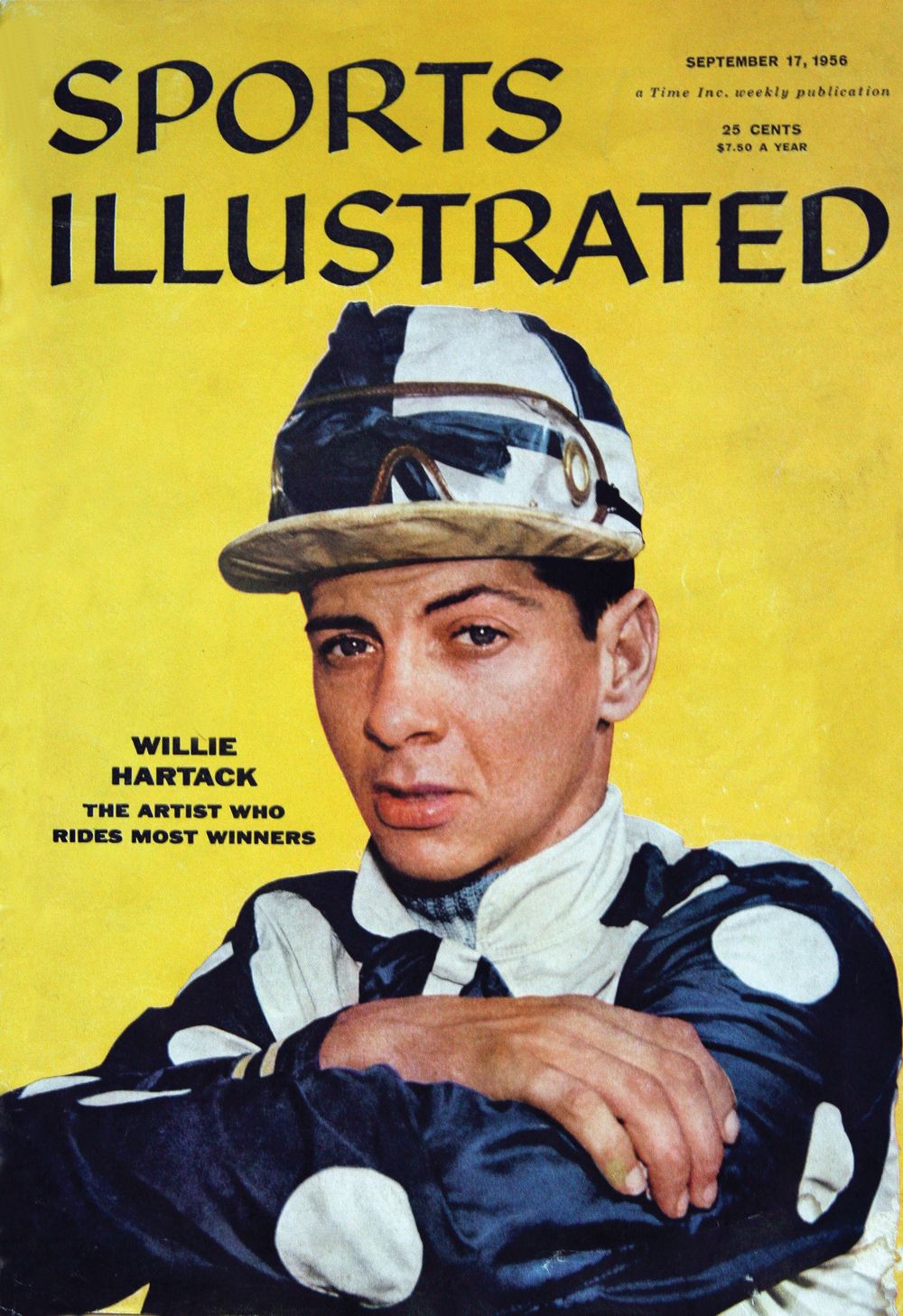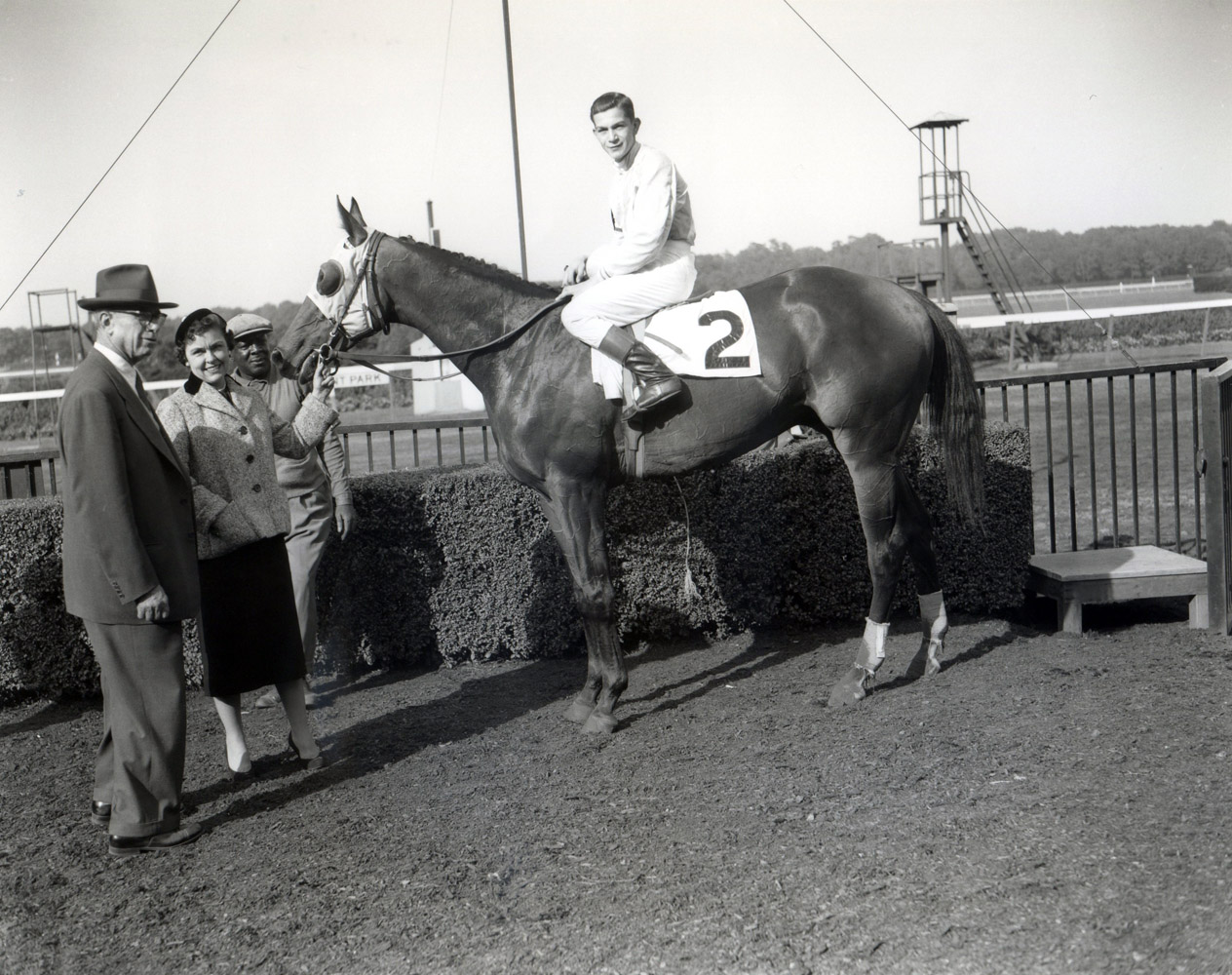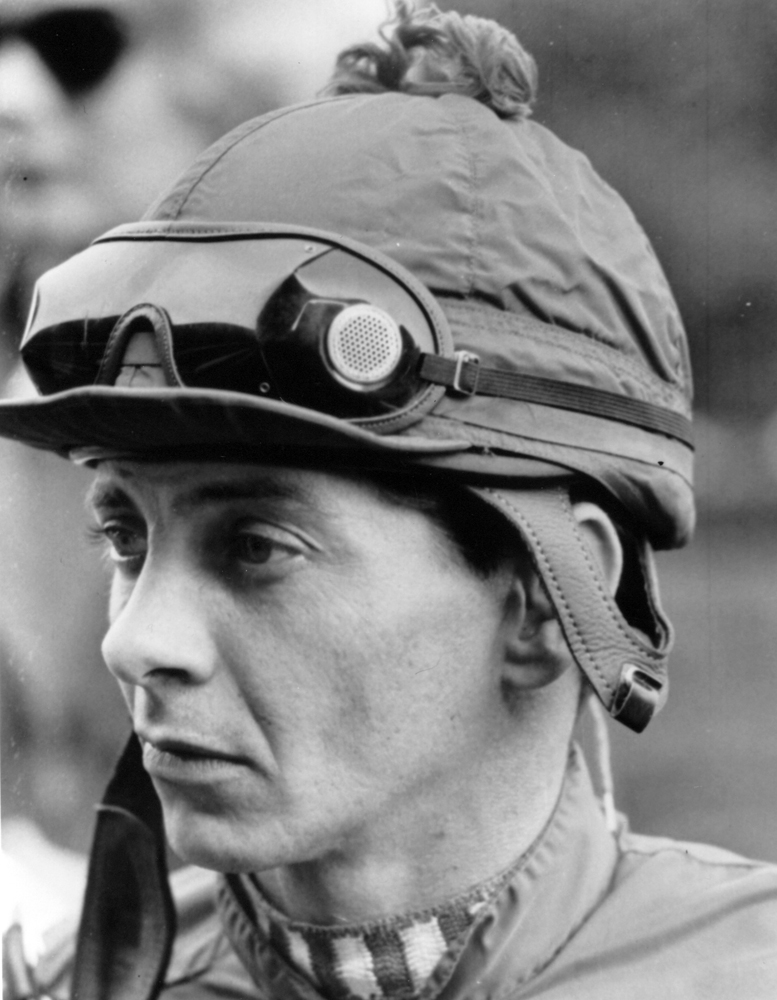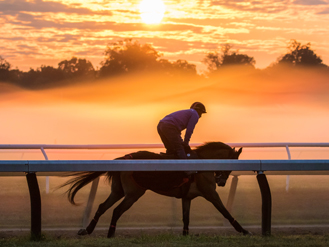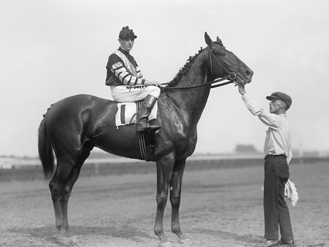William J. Hartack
By the summer of 1959, Bill Hartack had won the Kentucky Derby and Preakness Stakes, led all North American jockeys in wins three times and earnings twice, and was so highly regarded that he was already in the Hall of Fame. He was 26 years old — and he was just getting started.
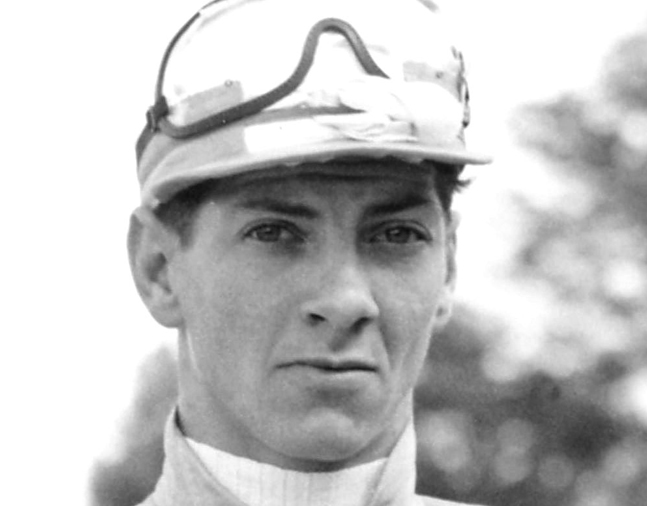
1959
Dec. 9, 1932, Edensberg, Pennsylvania
Nov. 26, 2007, Freer, Texas
1952-1974
4,272
$26,466,758
Racing Record
19.83
Win %
Biography
By the summer of 1959, Bill Hartack had won the Kentucky Derby and Preakness Stakes, led all North American jockeys in wins three times and earnings twice, and was so highly regarded that he was already in the Hall of Fame. He was 26 years old — and he was just getting started.
At the time of his Hall of Fame induction — he was the youngest rider ever to be so honored — Hartack was less than two years removed from becoming the first jockey to surpass $3 million in earnings in a single year. The total was more than $700,000 greater than the previous record, which Hartack had set in 1956, the year he won his first Triple Crown race with Fabius in the Preakness. Hartack’s $3 million year in 1957 included the first of his record-tying five Kentucky Derby victories, which he achieved with Iron Liege.
By his mid-20s, Hartack had a list of accomplishments few riders achieve in an entire career. The best was yet to come for the cantankerous but sometimes charismatic native of Ebensburg, Pennsylvania.
Agent Chick Lang began booking mounts for Hartack when the young jockey came to Maryland to ride early in his career. Lang also accompanied Hartack to Florida for his first winter of big-time racing. Hartack had the talent of a star, but his prickly persona rubbed many the wrong way.
“My biggest problem isn’t mounts, but Billy’s personality," Lang told Time magazine for a 1958 cover story. “I spend most of my time trailing around after him, apologizing to people he’s insulted. He’s particularly rude if he hasn’t won. He’s the most competitive athlete I ever saw. If he doesn’t win, he won’t talk to anybody."
Lang and Hartack eventually parted ways, but the agent always regarded Hartack as one of the finest riders in the sport’s history.
“He was just a great rider,” Lang said following Hartack’s death in 2007 at the age of 74. “He was a very, very deliberate rider. He knew what to do on a horse, and he did it well. If you were to ask me the best rider I ever saw, I’d say Eddie Arcaro a nose in front of Bill Hartack.”
Hartack, for all his obstinacy, could be charming under certain circumstances.
“On a horse, he was all business, but if you got to know him, he was friendly,” said fellow Hall of Fame rider Braulio Baeza, who became the second jockey to earn $3 million in a year, achieving the milestone 10 years after Hartack.
Hartack earned his first win at the age of 19 when he rode Nickleby to victory at Waterford Park in West Virginia in October 1952. It didn’t take Hartack long to become a standout and a polarizing presence. He topped all North American jockeys with 417 wins in 1955 (joining Bill Shoemaker as only the second rider to win more than 400 races in a year) and led the standings again in 1956, 1957, and 1960. But with success came controversy. In September 1958, Hartack punched another rider, Jimmy Johnson, in the jockeys’ room at Atlantic City Race Course. Hartack went after Johnson after the stewards disqualified one of Hartack’s mounts and made Johnson’s the winner. Hartack received a 15-day suspension — one of many times he was sat down during his career — and was criticized for a pattern of behavior unbecoming a rider in a Daily Racing Form editorial headlined, “Hartack Must Mature.”
Arcaro, who was president of the Jockeys’ Guild, didn’t care much for Hartack and his behavior.
“Hartack’s a great rider, but I don’t like him personally,” Arcaro said. “You never know how he’s going to act. One minute he’s friendly with you and the next minute he doesn’t know you.”
Hartack kept doing things his way. He dominated throughout the 1960s, winning the Derby four times in the decade with Venetian Way (1960), Decidedly (1962), Northern Dancer (1964), and Majestic Prince (1969). Hartack also won the Preakness with Northern Dancer and Majestic Prince and added a victory in the 1960 Belmont Stakes with Celtic Ash for a total of seven Triple Crown race wins in the decade.
When he won the 1969 Derby with Frank McMahon’s unbeaten Majestic Prince, Hartack matched Arcaro with his fifth victory in the Run for the Roses.
“He was the greatest Derby rider in history, won five of 12," the Daily Racing Form’s Joe Hirsch said of Hartack following the rider’s death. “He could make a judgment that was just genius, and make it quickly. He moved before most of the fellows had decided what to do.”
More than 50 years earlier, in a cover story for Sports Illustrated in September 1956, Hirsch also noted the contradictions of Hartack.
“He does indulge himself in the vilest of black moods, during which he refuses to speak to close friends, scowls and glowers at almost everyone,” Hirsch wrote. “Bill feels his position as one of America’s leading riders quite keenly, and hates to give bad performances or be beaten on a favorite. Since nearly everything he rides is heavily supported, the pressure is tremendous, and occasionally he gives vent to his feelings by sulking.
“However, when things are going right, he’s full of natural charm, discusses things intimately and frankly with even casual acquaintances. This is no simple boy, this Hartack. He hasn’t fully learned to accept all the many obligations or success as of yet. But then Arcaro, too, was a renowned wild one in his youth and matured into quite a man, respected wherever there was racing in this country. Hartack is the Arcaro of tomorrow, and tomorrow is almost today.”
Hartack retired in 1974 with 4,272 North American wins and purse earnings of more than $26 million. He later did television commentary, rode for some time in Hong Kong, and became a racing official. He died just a couple weeks shy of his 75th birthday on Nov. 26, 2007 of heart disease at a hunting ranch in Texas. Hartack was a lifelong bachelor who enjoyed dating many women, but much like his racing career he was never completely content.
“Maybe I’ll get married in a year, but there are three girls I’m thinking of,” he said in the Time cover story. “I haven’t met ’em yet, but it’s all arranged and I’ll meet ’em in the next three months. It’s the same as it is with racing. No matter how good a horse you’re on, you’re always looking for a better one.”
Achievements
North America’s leading rider in wins — 1955, 1956, 1957, 1960
North America’s leading rider in earnings — 1956, 1957
Triple Crown Highlights
Won the 1957 Kentucky Derby — Iron Liege
Won the 1960 Kentucky Derby — Venetian Way
Won the 1962 Kentucky Derby — Decidedly
Won the 1964 Kentucky Derby — Northern Dancer
Won the 1969 Kentucky Derby — Majestic Prince
Won the 1956 Preakness Stakes — Fabius
Won the 1964 Preakness Stakes — Northern Dancer
Won the 1969 Preakness Stakes — Majestic Prince
Won the 1960 Belmont Stakes — Celtic Ash
Media
